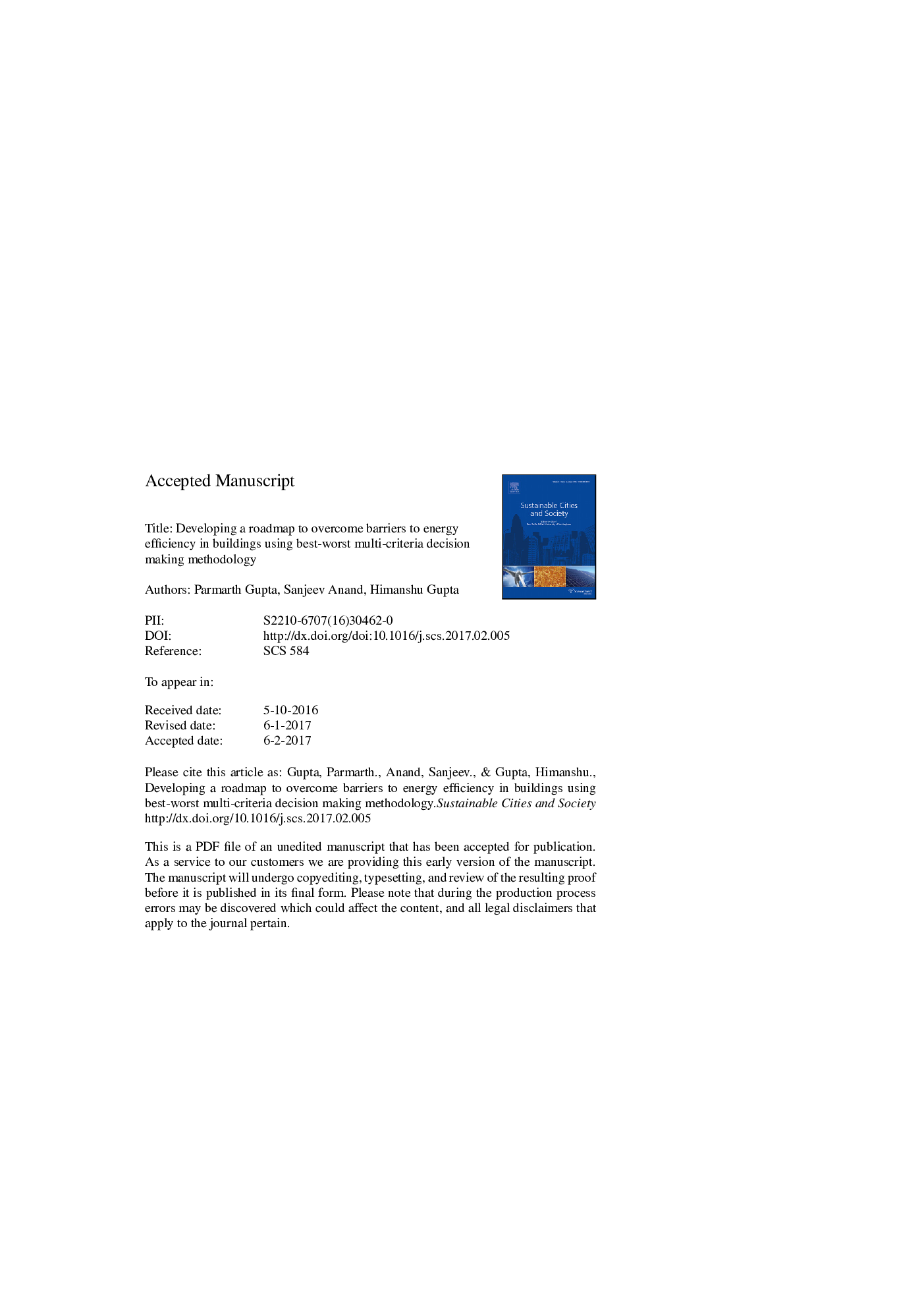| Article ID | Journal | Published Year | Pages | File Type |
|---|---|---|---|---|
| 4928062 | Sustainable Cities and Society | 2017 | 38 Pages |
Abstract
The rise in consumption of energy has led to the increased demand for energy. The contributing factors for energy consumption are industrialization and development. Both are important for the human sustenance over long term. The alternate sources of energy particularly renewable sources are being developed and boosted to support the existing production of energy for use. However, the 100% reliability or switching to a total renewable resource may some time required to be supported by strong measures. Looking into the present context the importance of efficient utilization of energy is seen as a strong and possible fit is managing the problem of increase of energy consumption. The challenges arising in the path of energy conservation or energy efficiency are many. A lot of research work is carried on the different individual factors which are hindering the progress of energy efficiency measures. Also a lot of measures have been suggested by different researchers from time to time. All these barriers and measures are either not organized in proper manner or are highly localized. A very meager attempt is made to study these barriers in a holistic manner. Some researchers have highlighted the role of sustainability in the development of energy. The relationship between the increase in demand of energy and economic development of a country is beyond challenge. For a developing country like India, where there is a big mismatch between energy supply and energy demand, and further challenge to keep this gap low due to rapid development, industrialization and urbanization. Energy Efficiency then becomes a very useful tool to overcome the challenges in supplying energy to all. Energy demand can be only be reduced and cannot be eliminated completely. The optimum level to which the energy consumption can be reduced is the indicator of energy efficiency. This term Energy Efficiency is affected in practice by lot of challenges which are making highly dynamic in nature. Therefore,it calls for a detailed and comprehensive approach in identification and listing of different factors governing energy efficiency in buildings in Indian context. Again only identification of barriers is not sufficient. A system needs to be adopted how these challenges or barriers can be addressed, for that some latest tools for ranking of these identified barriers needs to be adopted. Best-Worst multi-criteria decision making is used to rank the barriers. Results show economic, governmental and technological barriers as most prominent barriers among all. The results shall be of great help in decision making for effecting the improvement and development of energy efficiency measures in buildings. With the help of decision makers a roadmap is developed to help overcome these barriers over long, medium and short term respectively.
Keywords
Related Topics
Physical Sciences and Engineering
Energy
Renewable Energy, Sustainability and the Environment
Authors
Parmarth Gupta, Sanjeev Anand, Himanshu Gupta,
